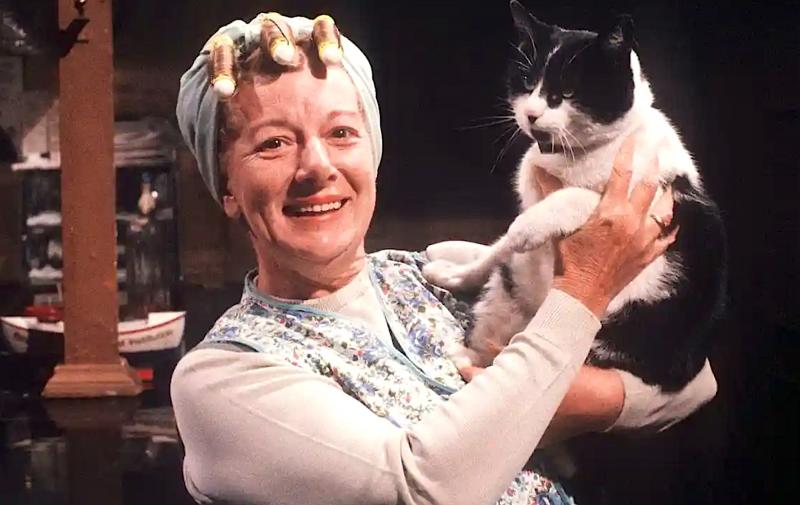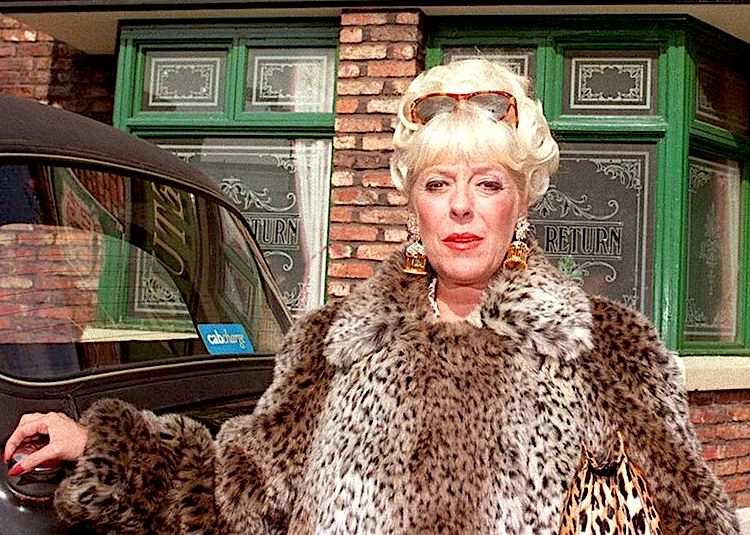Coronation Street: 60 Unforgettable Years, ITV review - inside story of the world's longest-running TV soap | reviews, news & interviews
Coronation Street: 60 Unforgettable Years, ITV review - inside story of the world's longest-running TV soap
Coronation Street: 60 Unforgettable Years, ITV review - inside story of the world's longest-running TV soap
They said it wouldn't last, but 'Corrie' became an all-time classic

The seductively breathy Joanna Lumley supplied the voice-over for this hugely entertaining romp through the history of Coronation Street, celebrating “the Diamond Jubilee of the world’s longest-running soap.” Yet wasn’t the uber-posh Lumley, scion of the British Raj, a discordant choice for this long-running saga of Mancunian fol
Elaine was a fleeting love interest for Ken Barlow, who would become far better known for his violently combustible marriage to Anne Kirkbride’s Deirdre (their 1981 screen wedding threatened to upstage Charles and Diana’s). William Roache, who plays Barlow, appeared here almost as the conscience of Coronation Street, having served loyally, man and boy, since the very first episode, broadcast on 9 December, 1960. “I’d like to be the first centenarian to be working in a soap,” he confided, even though he’d really prefer the show to be described as a cutting-edge drama serial.
Thanks to its extraordinary longevity and unique niche in British culture – Corrie was the show which proved to snooty southerners that the North did in fact exist, and was revolutionary in its portrayal of working-class life on TV – it has become more of a vocation, or perhaps a second life, than a mere acting job for its cast. Sally Dynevor plays Sally Webster, and both Dynevor and her character are cancer survivors. “Coronation Street means everything to me,” she said. “I love it, it saved my life.”
 Every interview helped to emphasise the way the drama and the cast’s real lives have become inextricably intermingled. Many of the characters have become archetypes almost as much, you might argue, as any in Dickens or Shakespeare. Jack and Vera Duckworth were tearfully remembered (“true soap royalty,” suggested Lumley), with the scene of Vera’s death after 50 years of marriage bringing several cast members to tears. Hilda Ogden’s swansong at the Rovers Return was another multi-Kleenex moment, as the regulars belted out the Gracie Fields favourite "Wish Me Luck (As You Wave Me Goodbye)" – cheap music was never more lethal – and the famous Hilda and Stan kiss was rightfully recognised. “What’s that lipstick taste of?” queried Stan. “Woman, Stanley – woman!” Hilda declared.
Every interview helped to emphasise the way the drama and the cast’s real lives have become inextricably intermingled. Many of the characters have become archetypes almost as much, you might argue, as any in Dickens or Shakespeare. Jack and Vera Duckworth were tearfully remembered (“true soap royalty,” suggested Lumley), with the scene of Vera’s death after 50 years of marriage bringing several cast members to tears. Hilda Ogden’s swansong at the Rovers Return was another multi-Kleenex moment, as the regulars belted out the Gracie Fields favourite "Wish Me Luck (As You Wave Me Goodbye)" – cheap music was never more lethal – and the famous Hilda and Stan kiss was rightfully recognised. “What’s that lipstick taste of?” queried Stan. “Woman, Stanley – woman!” Hilda declared.
And without ostentatiously banging drums for feminism or #MeToo, Corrie has been one of the longest-running demonstrations of girl power known to man. Even Clint Eastwood would wilt in the face of Bet Lynch (Julie Goodyear, pictured above), in full blast-furnace mode, laying down the law about what was not permissible in the Rovers – “religion, politics and pinching somebody else’s wife.” Elsie Tanner (Pat Phoenix) was another of the show’s original cornerstones, described in creator Tony Warren’s script as “late 40s, with the very battered and much painted-over remains of good looks.” The “strong northern women” have been Corrie’s foundations, from Ena Sharples (Violet Carson) and Gail Platt (Helen Worth) to a lineage of actresses including Sarah Lancashire, Katherine Kelly and Michelle Keegan.
There was much more besides, from the show’s treatment of domestic violence and some outlandish murders to the ground-breaking story of Hayley (Julie Hesmondhalgh) – the first transgender character in a British soap – and her marriage to Roy (David Neilson). As the saying goes, all of human life is here.
rating
Explore topics
Share this article
The future of Arts Journalism
You can stop theartsdesk.com closing!
We urgently need financing to survive. Our fundraising drive has thus far raised £49,000 but we need to reach £100,000 or we will be forced to close. Please contribute here: https://gofund.me/c3f6033d
And if you can forward this information to anyone who might assist, we’d be grateful.

Subscribe to theartsdesk.com
Thank you for continuing to read our work on theartsdesk.com. For unlimited access to every article in its entirety, including our archive of more than 15,000 pieces, we're asking for £5 per month or £40 per year. We feel it's a very good deal, and hope you do too.
To take a subscription now simply click here.
And if you're looking for that extra gift for a friend or family member, why not treat them to a theartsdesk.com gift subscription?
more TV
 Coldwater, ITV1 review - horror and black comedy in the Highlands
Superb cast lights up David Ireland's cunning thriller
Coldwater, ITV1 review - horror and black comedy in the Highlands
Superb cast lights up David Ireland's cunning thriller
 Blu-ray: The Sweeney - Series One
Influential and entertaining 1970s police drama, handsomely restored
Blu-ray: The Sweeney - Series One
Influential and entertaining 1970s police drama, handsomely restored
 I Fought the Law, ITVX review - how an 800-year-old law was challenged and changed
Sheridan Smith's raw performance dominates ITV's new docudrama about injustice
I Fought the Law, ITVX review - how an 800-year-old law was challenged and changed
Sheridan Smith's raw performance dominates ITV's new docudrama about injustice
 The Paper, Sky Max review - a spinoff of the US Office worth waiting 20 years for
Perfectly judged recycling of the original's key elements, with a star turn at its heart
The Paper, Sky Max review - a spinoff of the US Office worth waiting 20 years for
Perfectly judged recycling of the original's key elements, with a star turn at its heart
 The Guest, BBC One review - be careful what you wish for
A terrific Eve Myles stars in addictive Welsh mystery
The Guest, BBC One review - be careful what you wish for
A terrific Eve Myles stars in addictive Welsh mystery
 theartsdesk Q&A: Suranne Jones on 'Hostage', power pants and politics
The star and producer talks about taking on the role of Prime Minister, wearing high heels and living in the public eye
theartsdesk Q&A: Suranne Jones on 'Hostage', power pants and politics
The star and producer talks about taking on the role of Prime Minister, wearing high heels and living in the public eye
 King & Conqueror, BBC One review - not many kicks in 1066
Turgid medieval drama leaves viewers in the dark
King & Conqueror, BBC One review - not many kicks in 1066
Turgid medieval drama leaves viewers in the dark
 Hostage, Netflix review - entente not-too-cordiale
Suranne Jones and Julie Delpy cross swords in confused political drama
Hostage, Netflix review - entente not-too-cordiale
Suranne Jones and Julie Delpy cross swords in confused political drama
 In Flight, Channel 4 review - drugs, thugs and Bulgarian gangsters
Katherine Kelly's flight attendant is battling a sea of troubles
In Flight, Channel 4 review - drugs, thugs and Bulgarian gangsters
Katherine Kelly's flight attendant is battling a sea of troubles
 Alien: Earth, Disney+ review - was this interstellar journey really necessary?
Noah Hawley's lavish sci-fi series brings Ridley Scott's monster back home
Alien: Earth, Disney+ review - was this interstellar journey really necessary?
Noah Hawley's lavish sci-fi series brings Ridley Scott's monster back home
 The Count of Monte Cristo, U&Drama review - silly telly for the silly season
Umpteenth incarnation of the Alexandre Dumas novel is no better than it should be
The Count of Monte Cristo, U&Drama review - silly telly for the silly season
Umpteenth incarnation of the Alexandre Dumas novel is no better than it should be
 The Narrow Road to the Deep North, BBC One review - love, death and hell on the Burma railway
Richard Flanagan's prize-winning novel becomes a gruelling TV series
The Narrow Road to the Deep North, BBC One review - love, death and hell on the Burma railway
Richard Flanagan's prize-winning novel becomes a gruelling TV series

Add comment